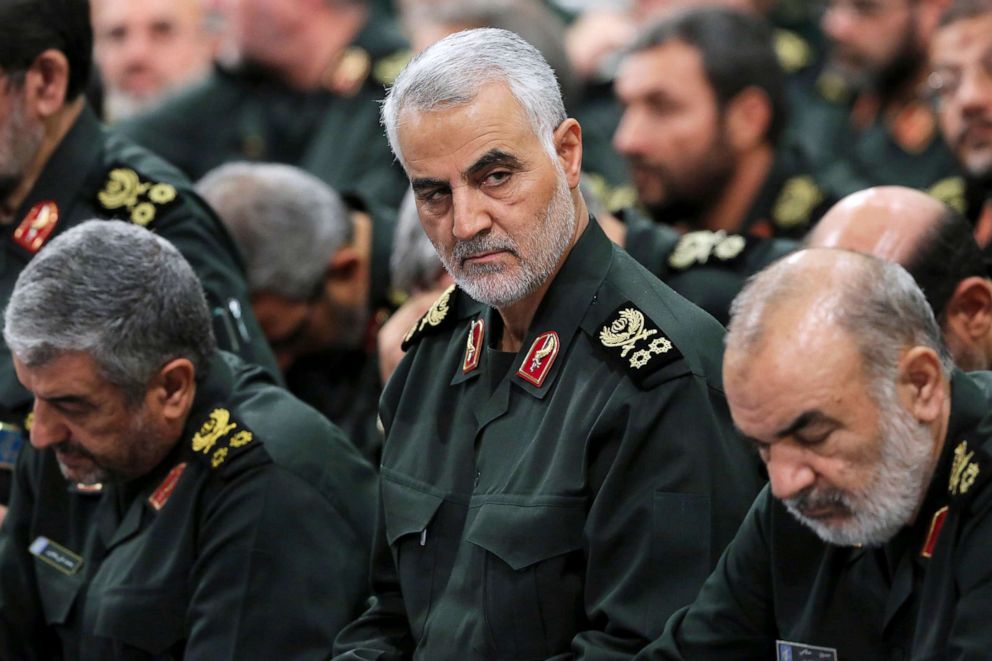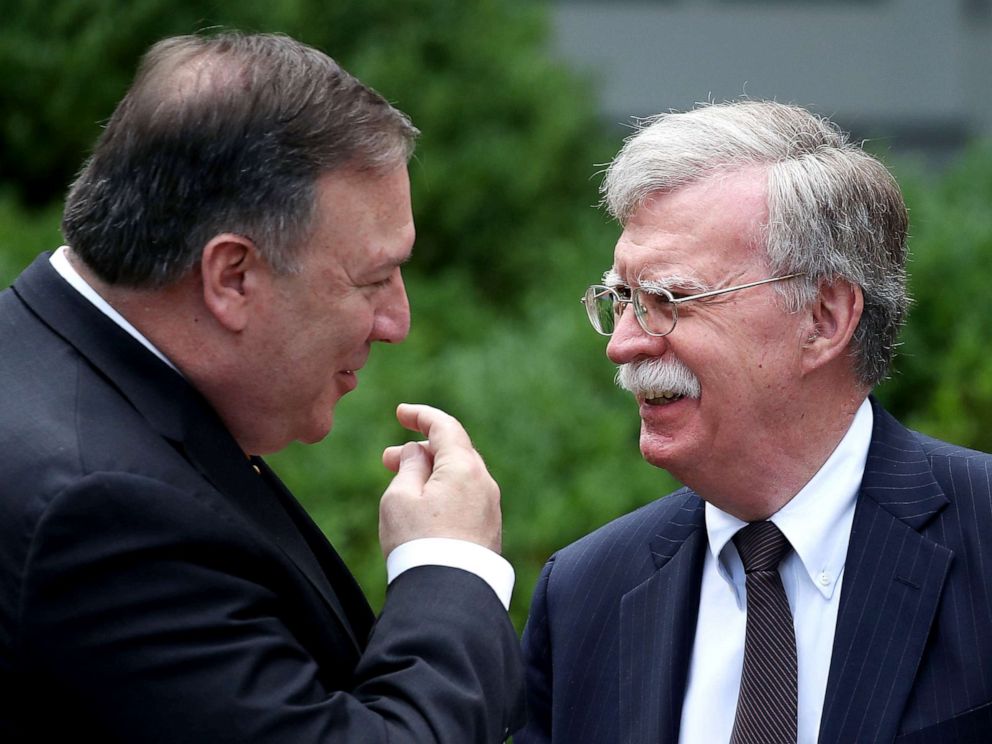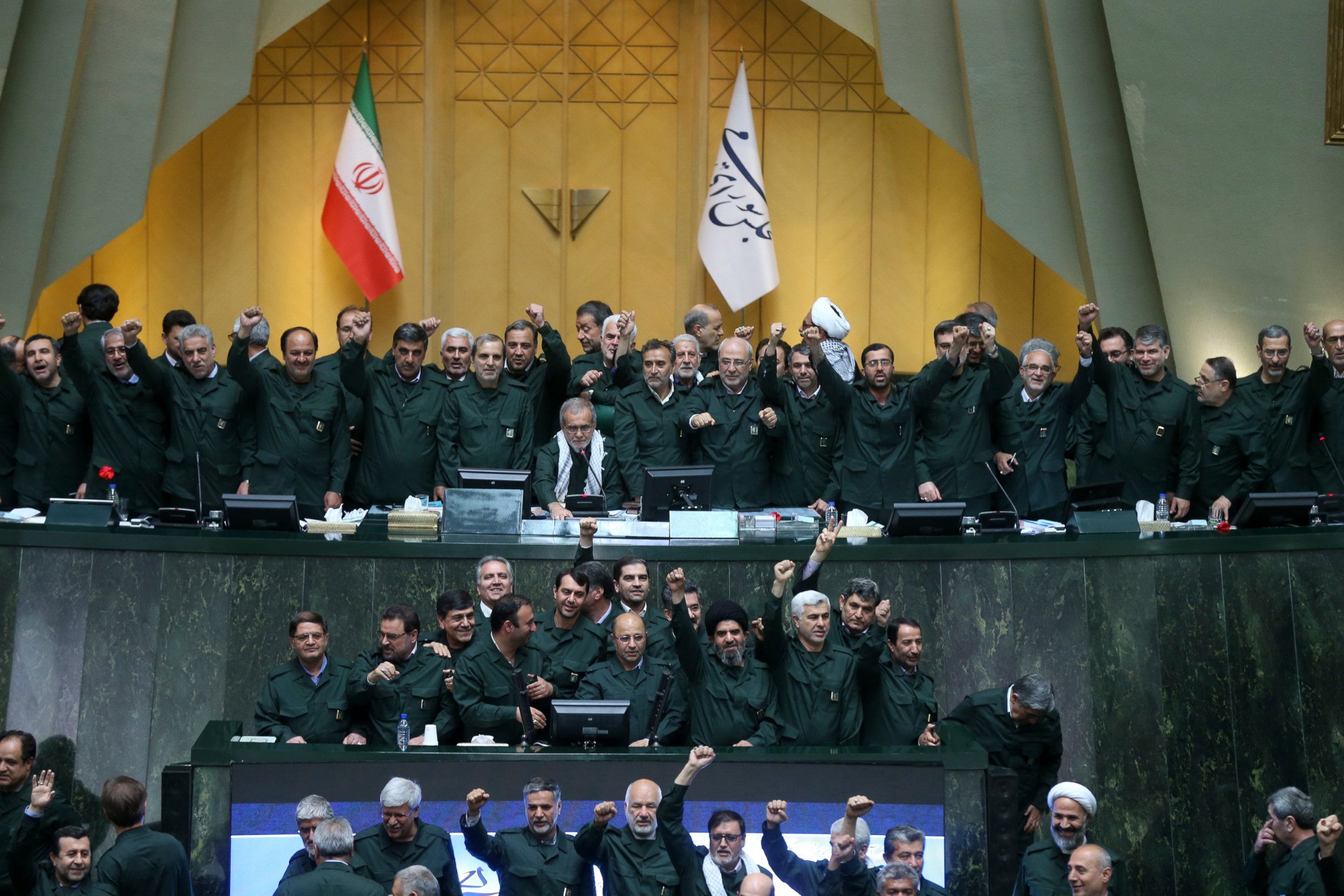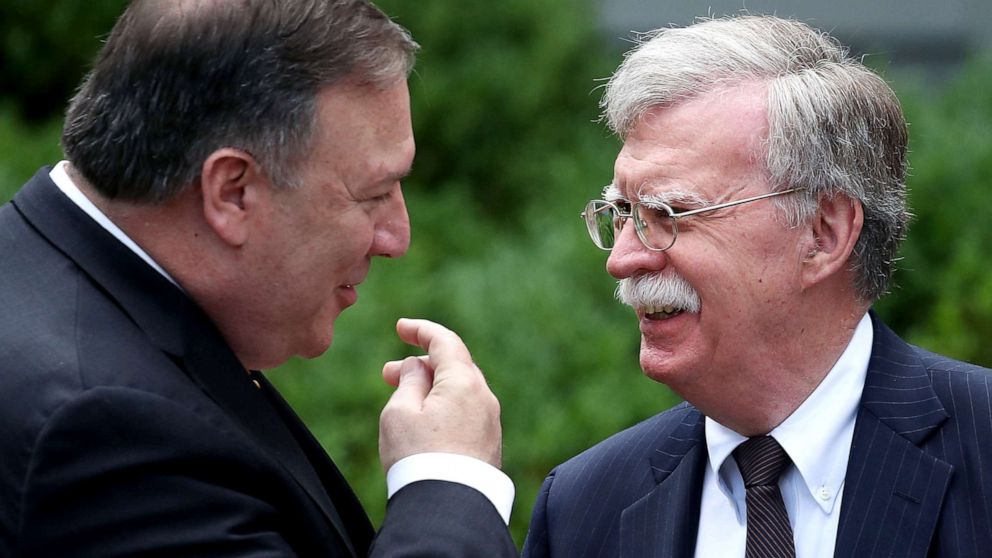New concerns Trump administration may be laying legal groundwork for military action against Iran
When Secretary of State Mike Pompeo announced the Trump administration would designate a branch of Iran’s military as a foreign terrorist organization Monday, he said, “The Trump administration is simply recognizing a basic reality.”
But critics say they are concerned that it may also be part of an effort to bend reality enough to provide legal justification for armed conflict with Iran.
“I am troubled that the administration can’t unequivocally say that you haven’t been given power. I can tell you explicitly, you have not been given power or authority by Congress to have war with Iran,” Sen. Rand Paul, R-Ky., told Pompeo on Wednesday.
The Trump administration will officially designate Iran’s Islamic Revolutionary Guard Corps as a foreign terrorist organization on Monday, making it the first foreign government entity on the State Department list. But the IRGC is already under heavy sanctions through the State and Treasury Departments, including as a Treasury special globally designated terrorist entity.

That makes the State Department designation a more symbolic gesture, according to some experts, because it does not provide financial, prosecutorial or immigration authorities the administration didn’t already have. The goal instead is to further chill economic investment in Iran, by making the economy “radioactive,” according to senior State Department official Brian Hook.
But it’s also raised concerns among some that the foreign terrorist organization, or FTO, designation is part of laying the groundwork for strikes on Iranian forces, especially in Iraq or Syria where they may encounter U.S. troops.
“One of the reasons why this action occurred could be because there’s an actual interest to do things directly against the IRGC,” said Jason Blazakis, who served as the director of the State Department’s Counterterrorism Finance and Designations Office from 2008 to 2018. While the designation doesn’t provide legal authority itself, it could be part of the administration’s argument, Blazakis said.
In particular, the administration is drawing a clearer line between Iran and the terror group al Qaeda. In its announcement Monday, the State Department said one reason for the designation is that “Iran continues to allow al Qaeda operatives to reside in Iran, where they have been able to move money and fighters to South Asia and Syria.”
“What the Trump administration is doing here though is that this seems to be part of a continued drum beat trying to create a narrative of a nexus between Iran and al Qaeda that started well before this FTO designation,” said Tess Bridgeman, who served as Deputy Legal Adviser to President Barack Obama’s National Security Council. "The Trump administration seems to be priming the public for an argument that the 2001 AUMF covers Iran."

The AUMF is the Authorization for the Use of Military Force, a law passed by Congress on Sept. 14, 2001. It provides the executive branch with broad authority to use force “against those nations, organizations, or persons” that it determines “planned, authorized, committed, or aided the terrorist attacks” on 9/11 “or harbored such organizations or persons.”
Pompeo refused to rule out whether the AUMF authorized military action against Iran or the IRGC, telling Paul, “I’d prefer just leave that to the lawyers.”
But he added that the connection between Iran and al Qaeda “is very real. … They have hosted al Qaeda, they have permitted al Qaeda to transit their country. No doubt, there is a connection between the Islamic Republic of Iran and al Qaeda. Period, full stop."
The top U.S. diplomat also said this week that the U.S. will pursue Qasem Soleimani, the leader of the IRGC, just as it does the leadership of ISIS. He wouldn’t explicitly say whether that meant a policy of capturing or targeting Soleimani, but he told Fox News Tuesday: “He is a terrorist. … Soleimani has the blood of Americans on his hands, as does the force that he leads, and America is determined … to reduce the risk that any American will be killed by Qasem Soleimani and his merry band of brothers ever again.”
The Pentagon declined to comment on whether the U.S. would target the IRGC, although a spokesperson, Cmdr. Rebecca Rebarich, told ABC News, “DoD’s rules of engagement have not changed as a result of this announcement.”
The connection between Iran and al Qaeda has been documented by the United Nations. A U.N. Security Council report published last July found al Qaeda leaders based in Iran “have grown more prominent” in projecting authority and dictating orders to groups in other countries. Since 2012, the State Department’s country terrorism report has also said Iran has allowed al Qaeda “facilitators to operate a core facilitation pipeline” through the country.
But the terror group, which is Sunni Muslim, has also conducted attacks on majority-Shia Iran. There have been numerous attacks by al Qaeda or its affiliates on Iran or its affiliates in Iraq and Syria, including a February attack in Iran’s southeastern province that killed at least 27 IRGC forces. Jaish al Adl, a Pakistan-based Sunni extremist group with ties to al Qaeda, claimed responsibility.

To justify the use of force with the AUMF, the administration would have to show Iran either “aided” al Qaeda or “harbored” it. But Bridgeman said the latter is written in past tense for a reason; it was meant to go after the Taliban, which before 9/11 had allowed al Qaeda broad access to land in Afghanistan to train and prepare the attacks.
Harboring the group’s leadership now may not qualify under the AUMF, and it’s unclear how much support is being provided beyond allowing leaders to operate in the country -- and whether that passes muster under the AUMF.
"Members of Congress are wise to be going on record rejecting the notion that Iran was implicated in the 9/11 attacks or is an 'associated' or 'successor' force of those who were," said Bridgeman, now a senior fellow at New York University's Center on Law and Security. "The argument is both dangerous and disingenuous."
But given the Trump administration’s hawkish views on Iran, Congress and some legal experts remain concerned.
“They’re susceptible to bending intelligence in a manner that conforms with policy objectives,” said Blazakis, now director of the Middlebury Institute’s Center on Terrorism, Extremism, and Counterterrorism.
That’s why the FTO designation could help build the case for military action.
“If there is an idea, a policy pushed from, say, [National Security Adviser John] Bolton and some of the more hardline folks in the White House, this plays right into that initiative to bolster the argument,” Blazakis added. “This administration isn’t bashful about going right up to the legal line.”




